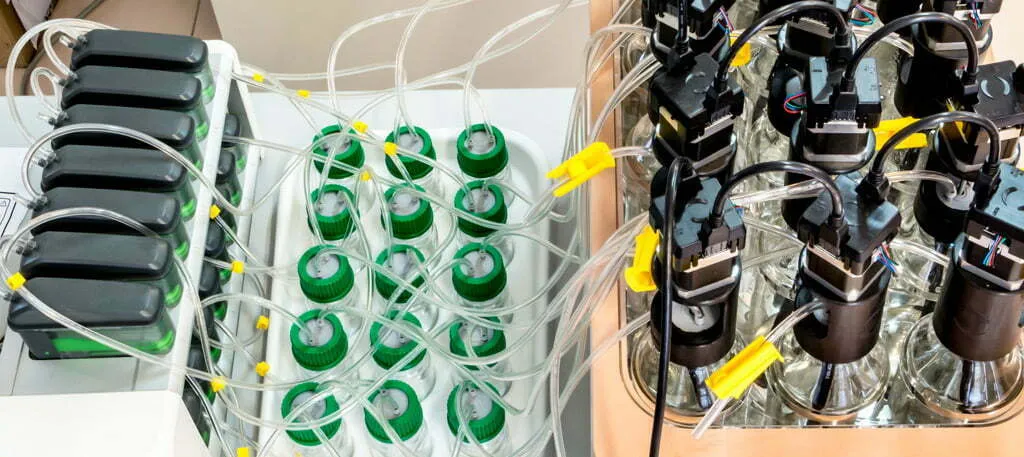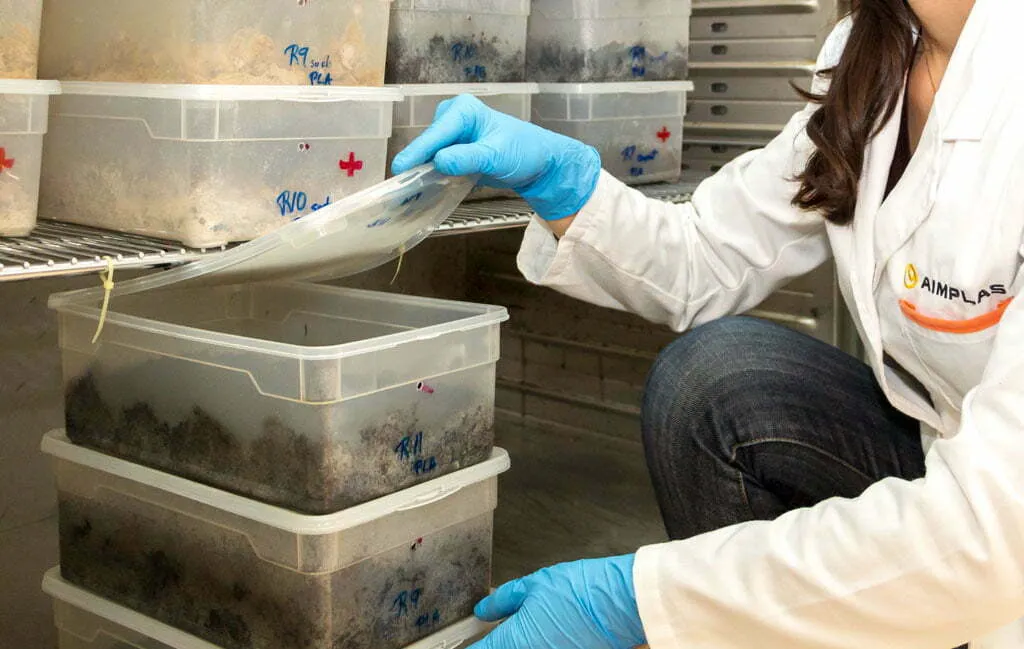ISO 14855: aerobic biodegradability under controlled composting conditions

AIMPLAS, in its biodegradability and compostability laboratories, carries out the necessary analyses to demonstrate that materials or products are biodegradable and/or compostable. We are certified by TÜV to obtain different eco-labels.
Biodegradability of plastic materials in compost
In the analysis of biodegradability of plastic materials in compost, the amount of carbon dioxide generated when the plastic material is subjected to specific conditions of biodegradation (medium, temperature and humidity) is evaluated. This parameter is an indirect measurement of the carbon dioxide of the polymer chain, which is biodegraded by microorganisms. This study is carried out following ISO 14855, which has two parts:
- UNE-EN ISO 14855-1: it detects the CO2 generated in the biodegradation process automatically.
- UNE-EN ISO 14855-2: it detects the CO2 generated in the biodegradation process by gravimetric measurement.
It is based on a method design to produce the optimum biodegradation rate of a plastic material in a mature compost by controlling the humidity, aeration rate and temperature in the composting bin.
Three important concepts need to be clarified:
- Compost: Organic soil conditioner obtained by the biodegradation of a mixture consisting of different vegetable waste with other organic material and having a limited mineral content.
- Composting: Aerobic process designed to produce compost.
- Aerobic biodegradation: Breakage of an organic compound by the action of microorganisms in the presence of oxygen in carbon dioxide, water, and mineral salts of other elements present and new biomass.
The method is applied to the following materials:
- Synthetic and/or natural polymers and copolymers and mixtures of both.
- Plastic materials containing additives as plasticizers or colourants.
- Water-soluble polymers.
- Materials that, under testing conditions, do not inhibit the activity of the microorganisms present in the inoculum.
The standard establishes that a sample is biodegradable if it reaches 90% of biodegradation in a maximum time of 180 days (6 months). The temperature, humidity and air parameters are monitored to ensure that they are in the range recommended by the standard (58ºC, 55% humidity and 100ml/min). The biodegradation curve has an ascending form, which is generated by the increase of weight (gravimetric detection) or CO2 produced (automatic detection) of the material to be analysed. This curve must reach 90% so that the material can be shown to be biodegradable.
In AIMPLAS, we put at your company’s disposal the necessary tools to certify your product as biodegradable. Contact us.
Biodegradation & Compostability Laboratory


